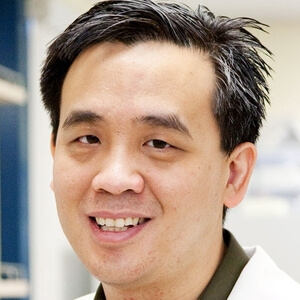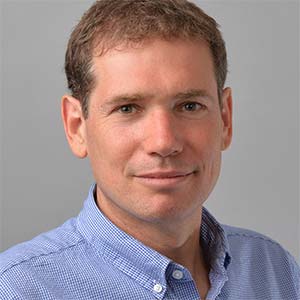Session Abstract – PMWC 2017 Silicon Valley
Session Synopsis: This session will cover the development and validation of clinical next-generation sequencing (NGS) assays for infectious disease diagnosis in precision medicine and highlight the promise, pitfalls, and regulatory / reimbursement issues associated with these emerging tests.
Session Chair Profile
M.D., Ph.D., Associate Professor of Laboratory Medicine and Medicine, Division of Infectious Diseases, UCSF; Director of the UCSF-Abbott Viral Diagnostics and Discovery Center (VDDC); Associate Director of the UCSF Clinical Microbiology Laboratory
Biography
Dr. Chiu’s laboratory is focused on clinical diagnostic next-generation sequencing assay development for infectious diseases using emerging technologies (nanopore sequencing, RNA-Seq host profiling), as well as investigation of emerging pathogens (Borrelia burgdorferi, Ebola virus, enterovirus D68, and Zika virus). He is the developer of the SURPI computational pipeline for pathogen identification from metagenomic data, and heads the “Precision Diagnosis of Acute Infectious Diseases” (PDAID) study, sponsored by the California Initiative to Advance Precision Medicine (CIAPM). His laboratory also develops new approaches for infectious disease diagnosis, including nanopore sequencing and RNA-Seq host response profiling. His work is also supported by research grants from the NIH, Bay Area Lyme Disease Foundation, UC Center for Accelerated Innovation, the Charles and Helen Schwab Foundation, the Gates Foundation, bioMérieux Inc., the USAID PREDICT program, and Abbott Laboratories, Inc. Dr. Chiu has authored more than 60 peer-reviewed publications, holds over 15 patents and patent applications, and serves on the scientific advisory board for Therabio, Inc. and Rubicon Genomics.
Speaker Profile
M.D., MPH, Medical Director, ARUP Laboratories, Assistant Professor of Pathology, University of Utah; CMO, IDbyDNA Inc.
Biography
Robert Schlaberg, MD, Dr. med., MPH is a medical director at ARUP Laboratories, an assistant professor of Pathology at the University of Utah, and a co-founder of IDbyDNA Inc. He completed his Clinical Pathology residency and Master of Public Health training at Columbia University, and a Medical Microbiology fellowship at ARUP Laboratories. His research is focused on next-generation sequencing-based infectious disease diagnostics and is supported in part by the Bill & Melinda Gates Foundation. He has co-developed Taxonomer, an ultrafast, user-friendly, web-based metagenomics data analysis tool with the goal of bringing precision medicine to infectious disease diagnosis. He is board-certified in Clinical Pathology and Medical Microbiology by the American Board of Pathology. He is a member of the College of American Pathologists’ Microbiology Resource Committee and Standard Committee.
Talk
Diagnostic Application of Next-Generation Sequencing Tests for Infectious Diseases
Current tests for infectious disease diagnosis rely on culture, antigen detection, and PCR. They often have low sensitivity, long turn-around-times, or limited scope. As a result, the etiology of many infections remains unknown and patients are treated empirically. This leads to missed opportunities for targeted treatment and overuse of antibiotics. Next-generation sequencing tests enable universal pathogen detection and can overcome many limitations of current infectious disease tests. Diagnostic laboratories face technical and logistical challenges for adopting metagenomics-based NGS tests.
Speaker Profile
Ph.D., CEO, Karius, Inc.
Biography
Dr. Kertesz co-founded Karius in 2014 to bring the pathogen detection technology he and colleagues developed at Stanford closer to the bedside. Prior to that, he was the CEO and co-founder of Moleculo, a long-reads DNA sequencing company, which was acquired by Illumina in late 2012. Dr. Kertesz earned an MS in computer science from Tel Aviv University and a PhD in computational biology from the Weizmann Institute of Science. He went on to complete his postdoctoral work in bioengineering at Stanford University, where he developed novel methods for investigating the genetic diversity of human viruses.
Talk
Infectious Disease Diagnostics for the Genomic Era
Recent advancements in sequencing technologies, analytical tools and the rapidly growing database of pathogen genome references hold the promise of enabling the simultaneous comprehensive testing of thousands of infectious agents. Key technical, clinical and regulatory challenges must be addressed to bring these powerful tools to the clinic.
Speaker Profile
Ph.D., Infectious Disease NGS Dx Sequencing POC, Microbiology Devices, Center for Devices (CDRH), US Food and Drug Administration
Biography
Dr. Heike Sichtig is a principal investigator (PI) and subject matter expert (SME) in FDA’s Office of In-Vitro Diagnostics and Radiological Health in the Division of Microbiology Devices. She directs, as sole PI, the highly collaborative effort on developing FDA-ARGOS: FDA dAtabase for Regulatory Grade micrObial Sequences. For her exceptional leadership on this project, Dr. Sichtig was awarded the Commissioners’ Special Citation award in 2016. Dr. Sichtig joined the Division of Microbiology Devices in 2012 and is primarily focused on enabling next generation sequencing (NGS) based technologies for clinical diagnostics. Dr. Sichtig leads a multidisciplinary team developing and implementing concepts for validation and evaluation of NGS-based infectious disease diagnostic devices. She obtained a B.S. / M.S. in Computer Science/Statistics from Kean University in 2002 and 2003, respectively, and a Ph.D. in Biomedical Engineering from Binghamton University in 2009. Subsequently, Dr. Sichtig completed postdoctoral training at the University of Florida/Genetics Institute in Gainesville FL in pathogen signatures, transcriptional regulation and epigenetics.
Talk
FDA’s Role and Tools for ID-NGS Diagnostics
The presentation will outline studies to evaluate the use of NGS-based devices and showcase the FDA-ARGOS database resource as an aid in infectious disease diagnostics, and to gain a better understanding of potential NGS clinical implementation strategies. The information contained in the presentation concerning possible approaches for validation represents suggested approaches, open for feedback.







